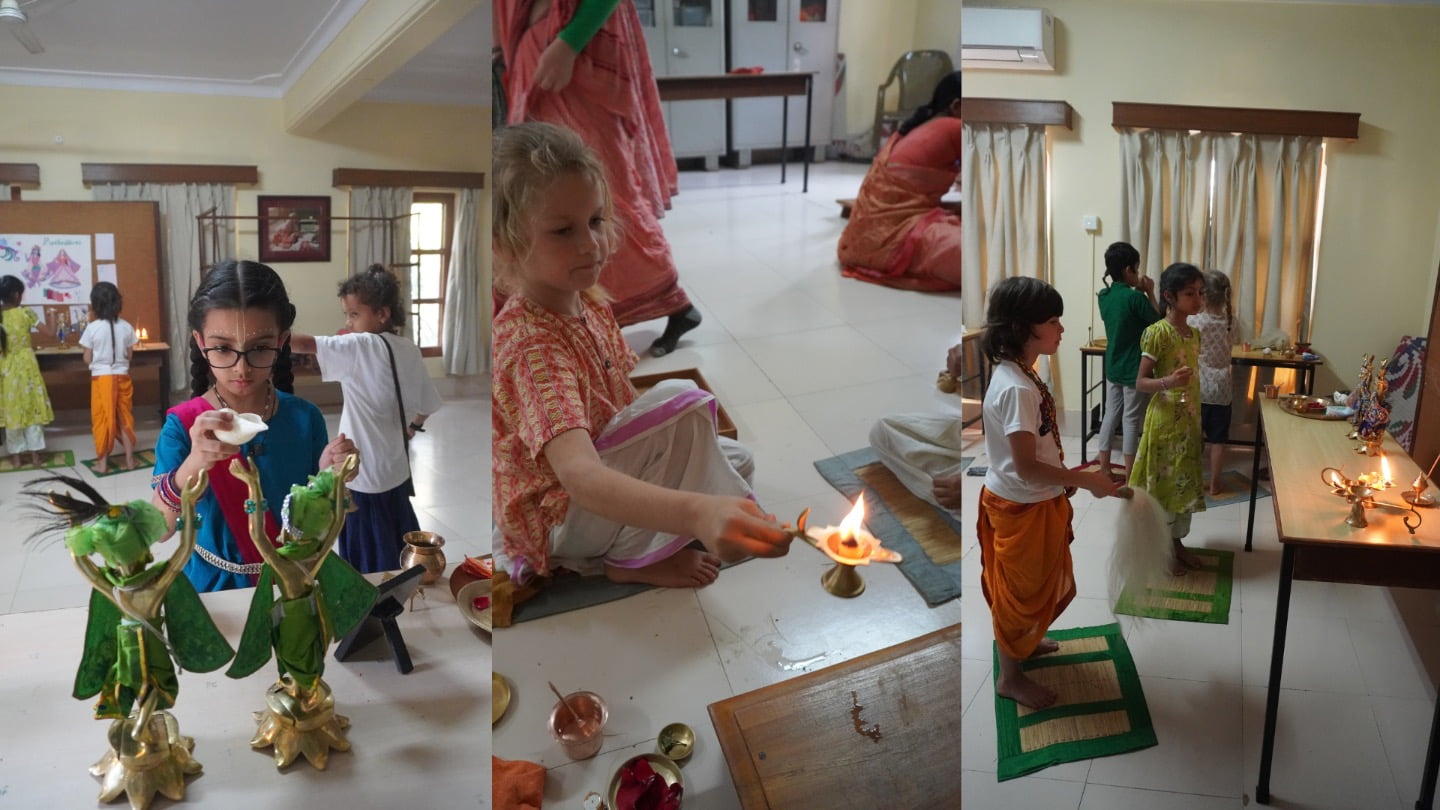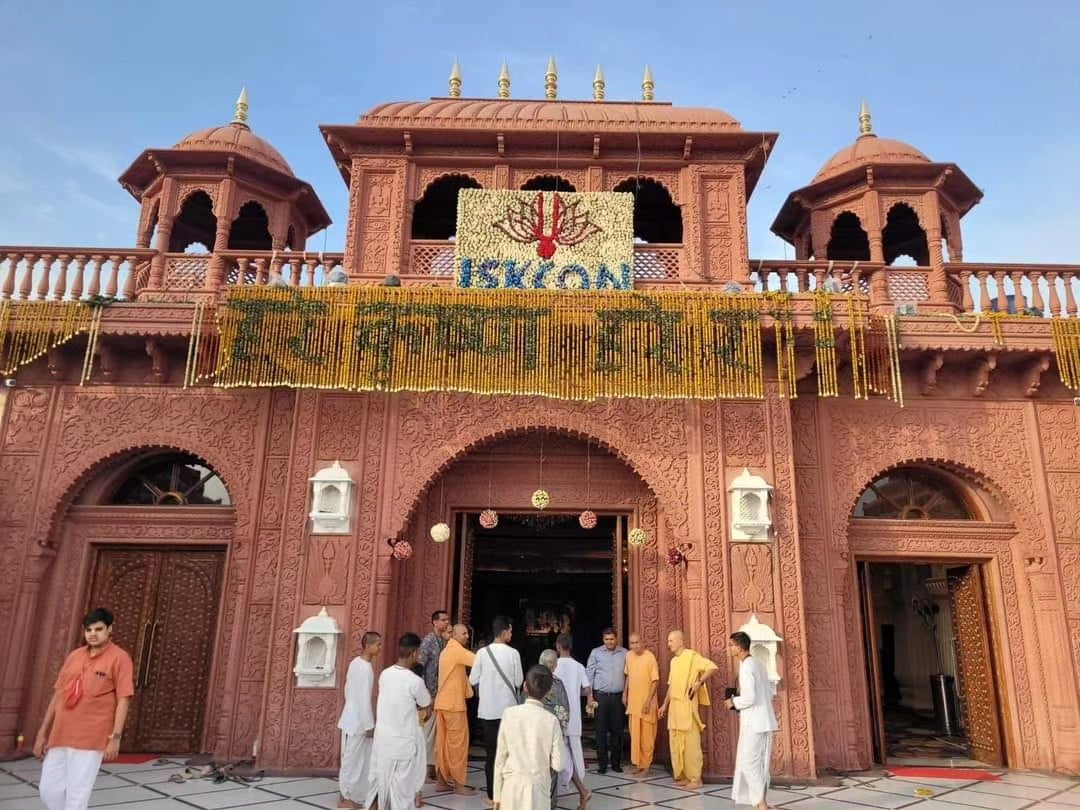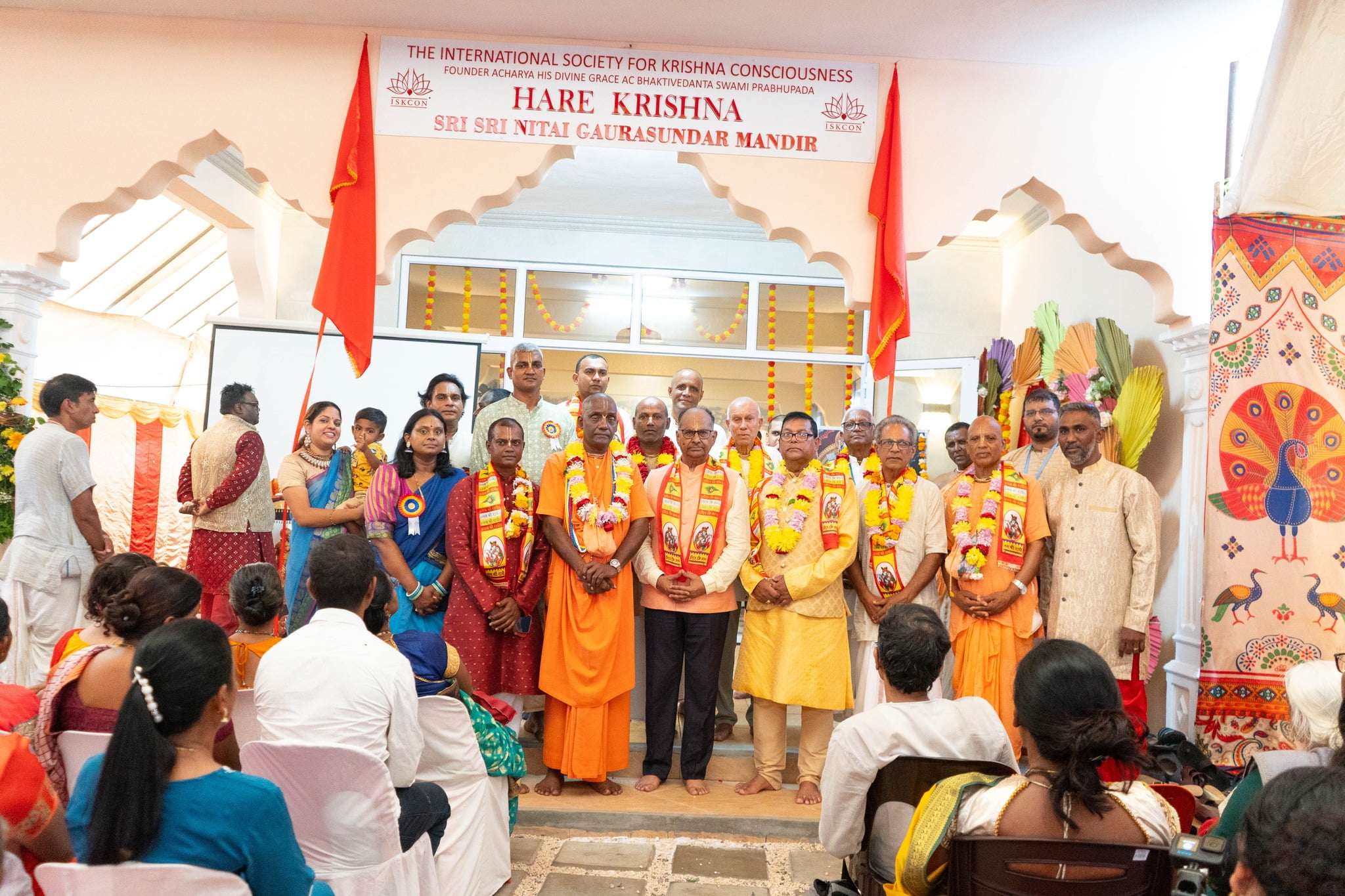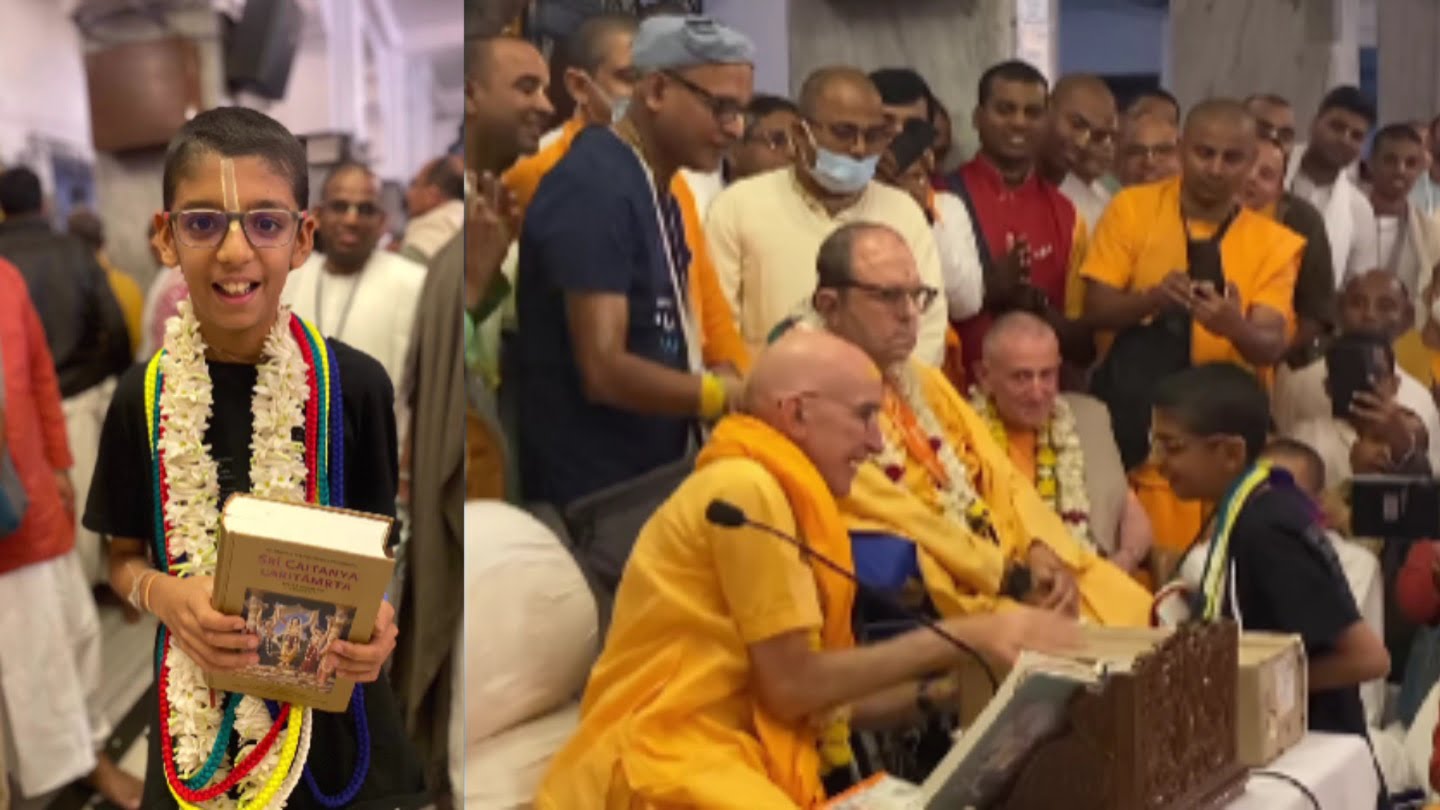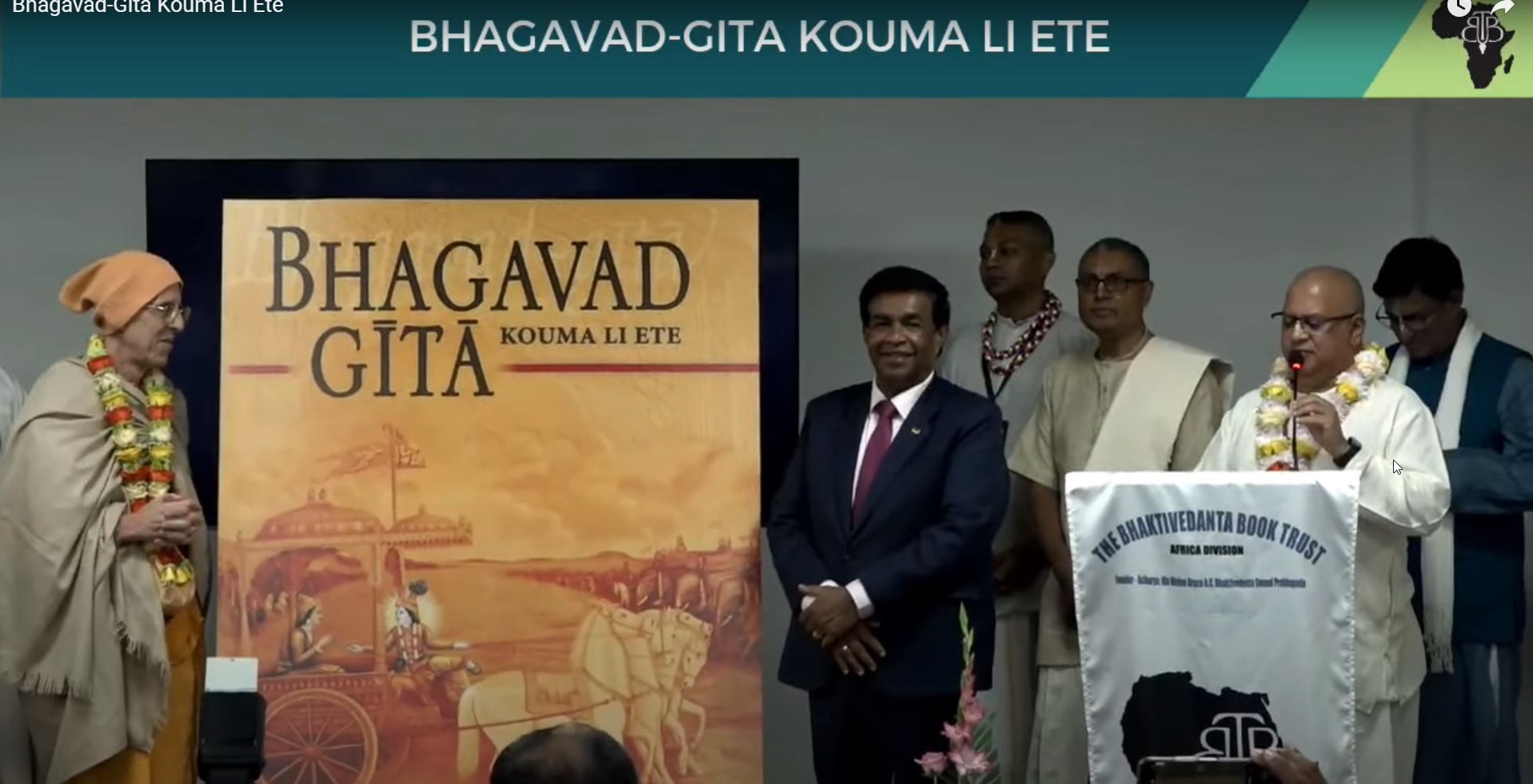Day Three of GBC Meetings: Education and Expansion
By Anuttama Dasa, Minister of Communications | Oct 12, 2017

Ujjain, India; October 11—Zonal Supervisors, an important leadership role created by the Governing Body Commission (GBC) to improve management in ISKCON around the world, was the first topic of today’s GBC meeting. Working directly under an individual GBC member, a Zonal Supervisor assists that GBC member by supervising a number of temples and projects within a particular geographical zone.
Currently most GBC members directly oversee all the temples in their zones. Some GBC members have intermediate managers under them, with different titles such as “Regional Secretaries” who oversee a group of temples. But, there is no standard process. One problem is that sometimes a GBC member may have dozens of temples under them directly. Being stretched so thin puts a lot of pressure on individual GBC members, and has led some local leaders to complain they lack sufficient guidance and presence of their GBC representative.

Gopal Krishna Goswami and Sesa prabhu in consultation during a break.
Rather than grow the GBC Body to an unmanageable number of GBC representatives to directly care for each community as ISKCON grows, the Zonal Supervisor position was created. Zonal Supervisors have a service similar to GBC members, but for a more manageable number of temples. Thus, Zonal Supervisors will oversee Temple Presidents and assist them in assuring Srila Prabhupada’s standards—both managerial and spiritual—are maintained in their temples.
Zonal Supervisors will be required to attend the GBC College (established in 2015), a year-long blended educational program with both residential and on-line leadership training. Thus, not only will Zonal Supervisors improve the accessibility of higher leadership to local ISKCON temples, but will also help improve the quality of that leadership.

Madhusevita Das, GBC representative from Europe makes a point on leadership.
The Zonal Supervisor program is just beginning to roll out on a global level. Challenges faced include finding suitable candidates and assuring essential services are not disturbed when Zonal Supervisors move up from a Temple President or other critical position.
The final discussion point regarding Zonal Supervisors reminded GBC members that individual regions of the world need to be flexible and transfer trained leaders from stronger regions to help regions of the world that need assistance. The example was given that Srila Prabhupada, in the early years of the movement, moved some of his best men and women from the western countries, especially America, where ISKCON began, to give a push to his movement in India.
One member recalled that at one point every American ISKCON temple was instructed by Srila Prabhupada to send two highly capable devotees to India. Some of those devotees remain as leaders in India today.

Revati Raman Das, GBC Member from South India, offers Guru Puja to Srila Prabhupada to inaugurate the meeting on day two.
Next the GBC members heard a report about the GBC College. The College has been based for the first three years at the Goverdan Eco Village in India. The President of the College is Rupanuga Das, a Laguna Beach, California based Professor of Business Management.
Nine modules of study were outlined as the future priorities of the College. They are:
- Self-Leadership (self-awareness and balancing personal duties)
- Mentorship—taking care of others; servant leadership
- Team Facilitation and Group Leadership
- On-Line Leadership—Use of modern technologies
- Spiritual Leadership—Siksha and diksha guru roles
- Project Leadership—Care of resources; temples, devotees and staff
- National Council Leadership—Including additional strategic planning skills
- Zonal Leadership—Overseeing multiple projects
- GBC—Global leadership and care of Srila Prabhupada’s movement

Ramai Swami, GBC member from Australia, makes his point.
Additional elements of the College were reported including:
- Focus on Youth
- Variety of Learning Experiences—including on-line, residential, field trips
- Ongoing Education—for all ISKCON leaders
- Secular Accreditation—like some other ISKCON education centers
The next report was about Global Duty Officers (GDO) of the GBC, a relatively new post. There are seventeen GDOs in place so far. They are focused on supporting and leading various international projects including ISKCON Connections, Sannyasa Ministry, GBC Executive Secretariat, ISKCON Economy, Global Legal, Health Ministry, GBC College, Marketing, SGGS (Sannyasi, Guru and GBC Sanga), Ministry of Education, and Congregational Development Ministry.
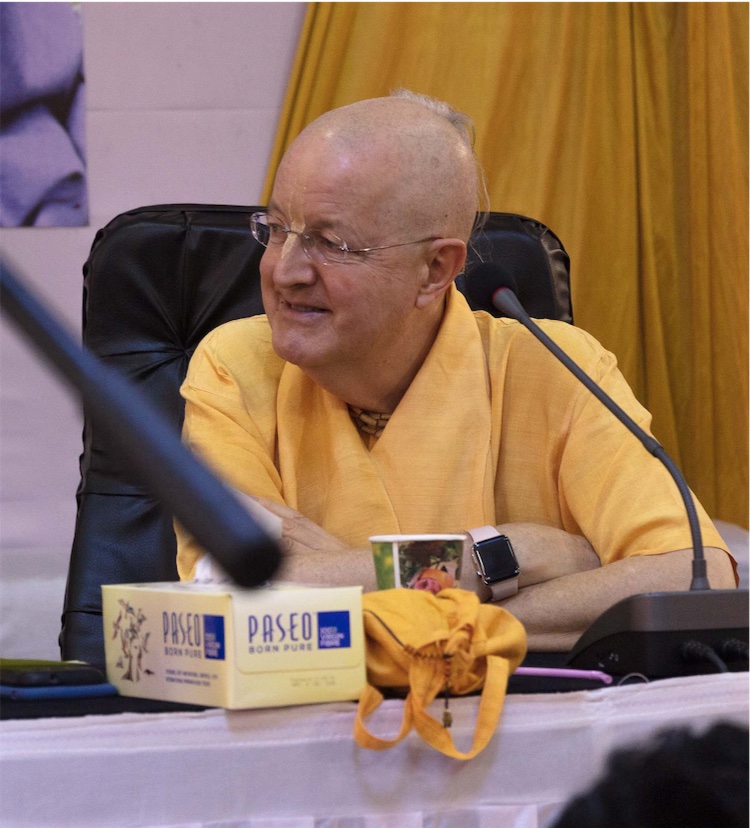
Romapada Swami, GBC representative from North America appreciates a point of discussion
The final morning topic was a discussion of preliminary plans for new GBC staff offices and headquarters in Mayapura.
Afternoon topics included the ISKCON economy and an update on the International Leadership Sanga (ILS) planned for the Gaura Purnima Festival at ISKCON’s international headquarters in Mayapur, West Bengal. Approximately sixty seminars are planned along with a variety of leadership training experiences, a special prayer for ISKCON day, and various spiritual retreat experiences for an expected one thousand international leaders.
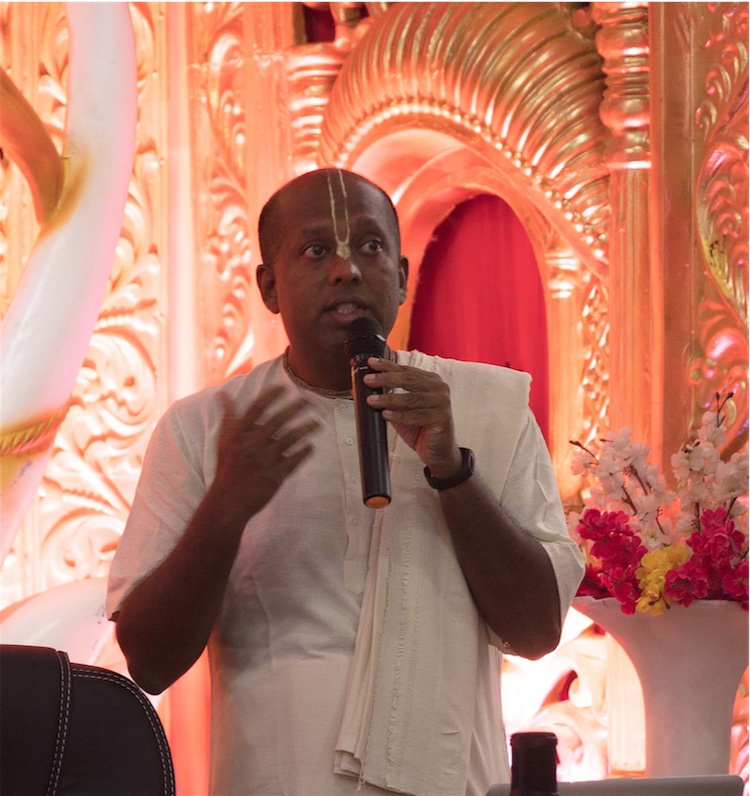
Tapan Misra Das, member of the GBC Organizational Development Committee (Org Dev), reports on the progress of the Global Duty Officers.



